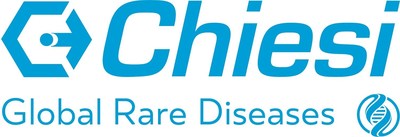Protalix BioTherapeutics and Chiesi Global Rare Diseases Receive Complete Response Letter for Pegunigalsidase Alfa from FDA
CARMIEL,

"While disappointing, we remain confident in the strength of our data and in the depth of our program," said
"Based on extensive clinical data including results from the Phase III BRIDGE clinical trial of PRX-102 for the proposed treatment of Fabry disease, we continue to feel strongly that PRX‑102 is an important option for the treatment of Fabry disease in adult patients, and we are continuing with our efforts to make this therapy available to patients," said
Fabry disease is an X-linked inherited disease caused by deficient activity of the lysosomal α‑Galactosidase‑A enzyme, resulting in progressive accumulation of abnormal deposits of a fatty substance called globotriaosylceramide (Gb3) in the blood and blood vessel walls throughout the human body. Symptoms of Gb3 deposition range from episodes of pain, gastrointestinal (GI) symptoms, fatigue, angiokeratoma, and abnormal sweating to serious complications including cardiovascular, renal, and cerebrovascular events.
The PRX-102 BLA was initially submitted under the accelerated approval pathway and was granted Priority Review by the FDA. Priority Review is granted to therapies that the FDA determines have the potential to provide significant improvements in the treatment, diagnosis or prevention of serious conditions. The BLA submission for PRX‑102 included a comprehensive set of preclinical, clinical, and manufacturing data compiled from the completed Phase I/II clinical trial of PRX‑102, including the related extension study succeeding the Phase I/II clinical trial, interim clinical data from the Phase III BRIDGE switch-over study and safety data from
We remain committed to the Phase III clinical program which is progressing, and patients continue to receive PRX‑102 treatment in the ongoing BALANCE study sponsored by
About Pegunigalsidase Alfa (PRX‑102)
Pegunigalsidase alfa (PRX‑102) is an investigational, plant cell culture-expressed, and chemically modified stabilized version of the recombinant α-Galactosidase-A enzyme. Protein sub-units are covalently bound via chemical cross-linking using short PEG moieties, resulting in a molecule with unique pharmacokinetic parameters. In clinical studies, PRX‑102 has been observed to have a circulatory half-life of approximately 80 hours.
About
About Chiesi Global Rare Diseases
Chiesi Global Rare Diseases is a business unit of the
About
Based in
Protalix BioTherapeutics Forward-Looking Statements Disclaimer
To the extent that statements in this press release are not strictly historical, all such statements are forward-looking, and are made pursuant to the safe-harbor provisions of the Private Securities Litigation Reform Act of 1995. The terms "expect," "anticipate," "believe," "estimate," "project," "may," "plan," "will," "would," "should" and "intend," and other words or phrases of similar import are intended to identify forward-looking statements. These forward-looking statements are subject to known and unknown risks and uncertainties that may cause actual future experience and results to differ materially from the statements made. These statements are based on our current beliefs and expectations as to such future outcomes. Drug discovery and development involve a high degree of risk and the final results of a clinical trial may be different than the preliminary findings for the clinical trial. Factors that might cause material differences include, among others: Risks related to the timing and progress of the preparation of an updated BLA addressing the complete response letter; Risks related to the timing, progress and likelihood of final approval by the FDA of a resubmitted BLA for PRX‑102 and, if approved, whether the use of PRX-102 will be commercially successful; failure or delay in the commencement or completion of our preclinical studies and clinical trials, which may be caused by several factors, including: slower than expected rates of patient recruitment; unforeseen safety issues; determination of dosing issues; lack of effectiveness during clinical trials; inability or unwillingness of medical investigators and institutional review boards to follow our clinical protocols; and inability to monitor patients adequately during or after treatment; risks associated with the novel coronavirus disease, or COVID-19, outbreak, which may adversely impact our business, preclinical studies and clinical trials; risks related to any transactions we may effect in the public or private equity markets to raise capital to finance future research and development activities, general and administrative expenses and working capital; the risk that the results of the clinical trials of our product candidates will not support the applicable claims of safety or efficacy, or that our product candidates will not have the desired effects or will be associated with undesirable side effects or other unexpected characteristics; risks related to our ability to maintain and manage our relationship with our collaborators, distributors or partners; risks related to the amount and sufficiency of our cash and cash equivalents; risks relating to our ability to make scheduled payments of the principal of, to pay interest on or to refinance our outstanding notes or any other indebtedness; our dependence on performance by third party providers of services and supplies, including without limitation, clinical trial services; delays in our preparation and filing of applications for regulatory approval; delays in the approval or potential rejection of any applications we file with the FDA, EMA or other health regulatory authorities, and other risks relating to the review process; the inherent risks and uncertainties in developing drug platforms and products of the type we are developing; the impact of development of competing therapies and/or technologies by other companies and institutions; potential product liability risks, and risks of securing adequate levels of product liability and other necessary insurance coverage; and other factors described in our filings with the U.S. Securities and Exchange Commission. The statements in this press release are valid only as of the date hereof and we disclaim any obligation to update this information, except as may be required by law.
Protalix BioTherapeutics Media Contact
+1-646-627-8390
chuck@lifesciadvisors.com
Chiesi Global Rare Diseases Media Contact
Berry & Company Public Relations
1-212-253-8881
jurban@berrypr.com

![]() View original content:http://www.prnewswire.com/news-releases/protalix-biotherapeutics-and-chiesi-global-rare-diseases-receive-complete-response-letter-for-pegunigalsidase-alfa-from-fda-301278658.html
View original content:http://www.prnewswire.com/news-releases/protalix-biotherapeutics-and-chiesi-global-rare-diseases-receive-complete-response-letter-for-pegunigalsidase-alfa-from-fda-301278658.html
SOURCE